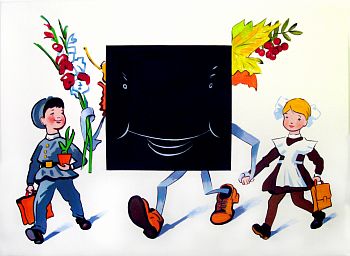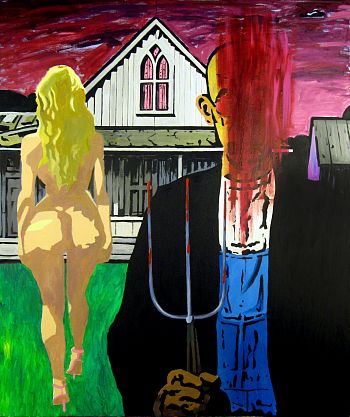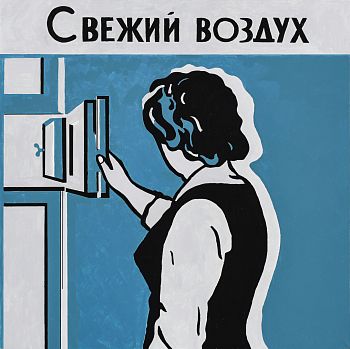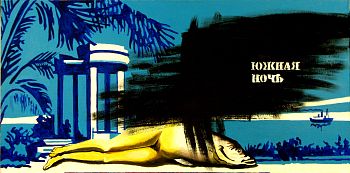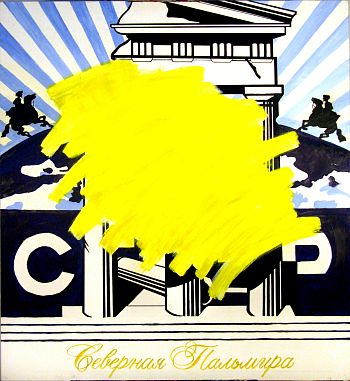Ростислав Лебедев (р. 1946) – известный современный художник, активный участник неофициального искусства в советское время, один из основателей направления «соц-арт». В своих работах он одним из первых в отечественном искусстве использует приемы, которые впоследствии станут расхожими штампами постмодернизма: цитаты из классических произведений, их ироничное комбинирование, тематизация четко очерченных дискурсивных практик – политической, фрейдистской с агрессивным сексуальным подтекстом, постколониальной. Одним из первых Лебедев вводит в своих произведениях рефлексивные отсылки к художественной практике своих современников и соотечественников.
Мама, я летчика люблю
, 2022
Ростислав Лебедев (р. 1946) – известный современный художник, активный участник неофициального искусства в советское время, один из основателей направления «соц-арт». В своих работах он одним из первых в отечественном искусстве использует приемы, которые впоследствии станут расхожими штампами постмодернизма: цитаты из классических произведений, их ироничное комбинирование, тематизация четко очерченных дискурсивных практик – политической, фрейдистской с агрессивным сексуальным подтекстом, постколониальной. Одним из первых Лебедев вводит в своих произведениях рефлексивные отсылки к художественной практике своих современников и соотечественников.
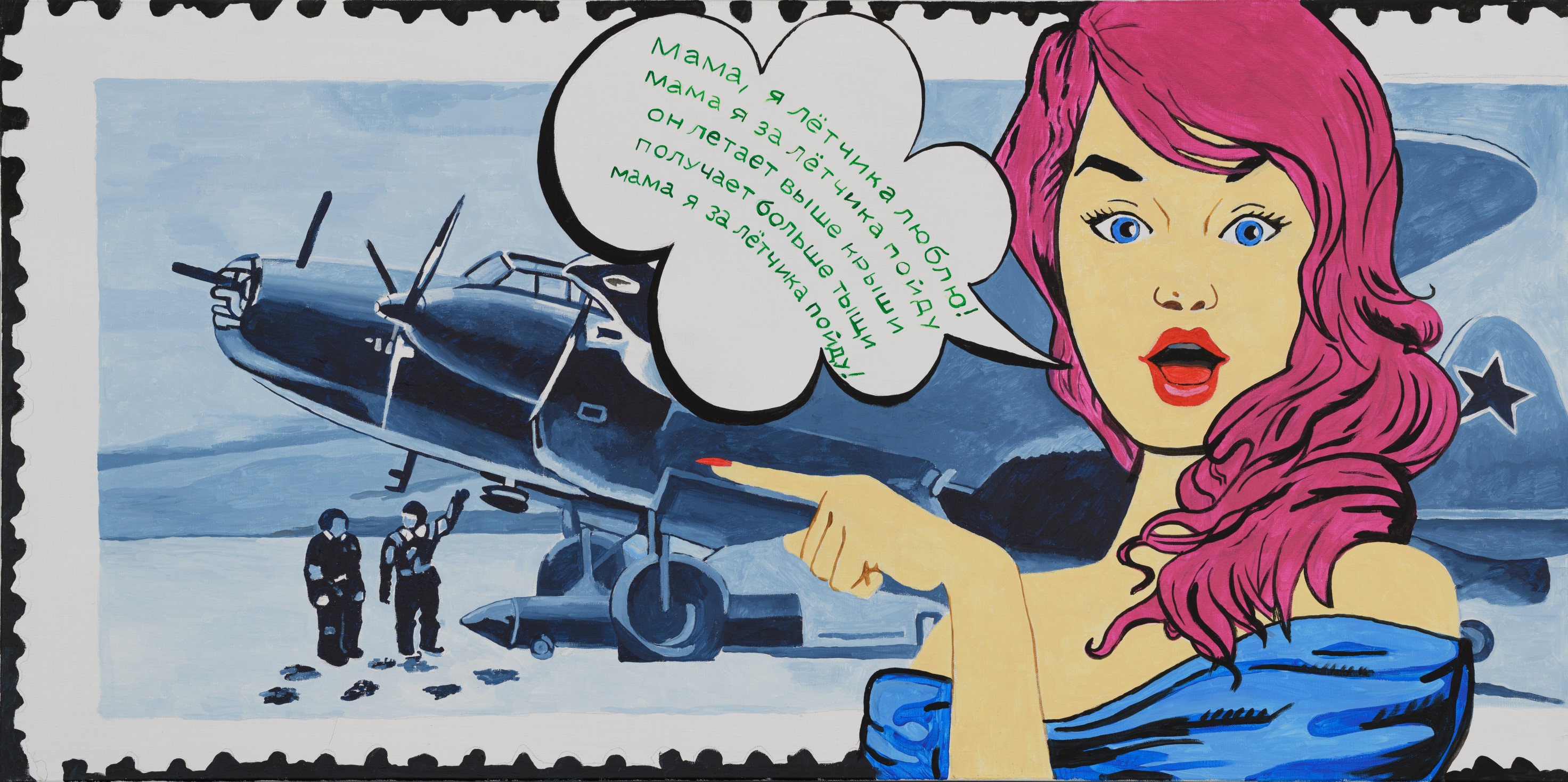 140
70
140
70


